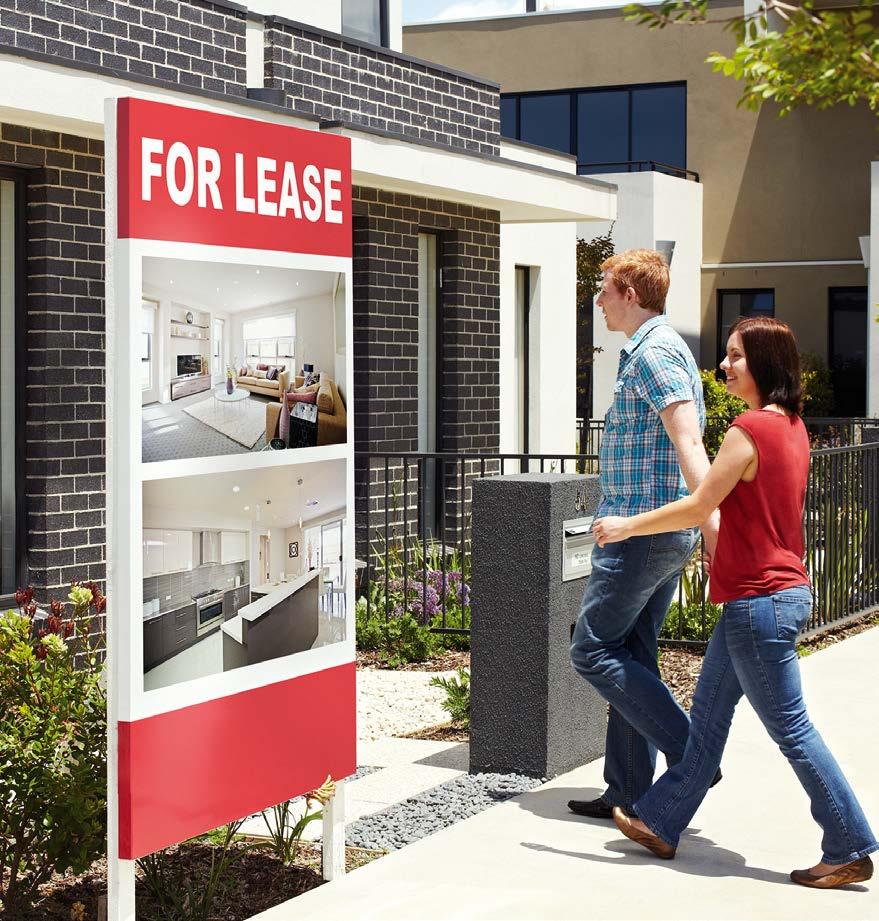
6 minute read
Part 4: Leaving a tenancy after giving or receiving notice
Preparing to leave the property
Discuss the return of the bond with your landlord or agent. Finalise any outstanding rent and bills. Take your belongings with you. Provide a forwarding address.
Advertisement
Agreeing on the return of the bond
At the end of a tenancy you and your landlord or agent should:
attempt to agree on how the bond money is to be divided. For example, there may be some property damage that needs repair set out the agreed division in the bond claim. This must be accepted (online) or signed (paper form) by all parties, and submitted to the Residential Tenancies Bond Authority (RTBA). If your landlord or agent makes the bond claim online, you will receive an email to review and approve the claim details use a new bond claim form if any changes need to be made, as the RTBA will not accept a form that has been altered in any way.
Your landlord may claim part of the bond. When any part of the bond is to be paid to the landlord, the bond claim cannot be completed more than seven days before the end of the tenancy. Remember: Never agree to or sign a bond claim form that does not show the amount you are to receive. It is against the law for a landlord or agent to request or obtain your agreement or signature if the form does not show how the bond amount is to be refunded and distributed. If you are asked to sign a blank bond claim form, contact the RTBA for assistance – see ‘Residential Tenancies Bond Authority (RTBA)’ on page 56 .
The agent or landlord should submit a bond claim to the RTBA within 10 days of the end of the tenancy.
When the RTBA receives a bond claim, it repays the bond directly into the nominated bank account.
If your agent or landlord submitted it online, the money is repaid within 24 hours of all tenants agreeing to the bond claim.
If you have not provided valid bank account details, the RTBA will retain your bond money. You will need to generate a retained repayment form from rentalbonds.vic.gov.au, enter in valid bank account details and mail the form to the RTBA.
If you share a tenancy, the RTBA will not pay out part of the bond if a tenant leaves. Adjustments of bond contributions between outgoing and incoming tenants are a private matter between the tenants, but the RTBA must be told about any change of tenants during a tenancy with a tenant transfer form or online submission.
Bonds from the Director of Housing ( DoH)
If the DoH has provided your bond, you cannot agree to the release of any of the bond to your landlord. The RTBA will pay out the bond to the DoH at the end of the tenancy, once the landlord or agent submits the bond claim.
If a bond claim form is not lodged, the DoH will not know the tenancy has ended and the bond amount will remain registered as an outstanding debt against the tenant.
If there is any claim by the landlord on a bond provided by the DoH, the claim must be heard by the Victorian Civil and Administrative Tribunal ( VCAT). Can a landlord or agent claim the bond?
Your landlord or agent may make a claim on part or all of the bond for:
damage caused by you or your visitors cleaning expenses abandonment of the premises you leaving your landlord to pay bills you should have paid loss of the landlord’s goods unpaid rent.
The landlord must accept fair wear and tear.
If there is disagreement about the division of the bond, your landlord must apply to VCAT to have the matter resolved within 10 business days of you vacating the premises.
You may also apply to VCAT on the same grounds at any time.
VCAT does not charge an application fee when the landlord is claiming an amount equal to or less than the bond. A fee does apply when the compensation claim is more than the bond.
Once VCAT has made an order, you and your landlord or agent must complete a bond claim form and mail it to the RTBA with a copy of the order.
Final meter readings
If you have separate meters for gas, water or electricity you should let the providers know in advance you will be moving out. If you do not do this, you may be charged for utilities in the next billing period.
Belongings left behind
If you leave any personal documents or goods behind, you should make arrangements to collect them. If these arrangements cannot be made, your landlord or agent may request an inspection from Consumer Affairs Victoria. The inspector will advise the landlord or agent what to do with the goods.
Your landlord or agent cannot refuse to give back any of your belongings, even if you owe rent. If you suffer a loss because your landlord or agent did not comply with the legislation in withholding your goods, you can apply to VCAT for compensation.
If your landlord or agent has complied with the legislation and suffered a loss through the cost of storing and auctioning your goods, they can also apply to VCAT to be compensated. Personal documents
Personal documents include:
official documents photographs correspondence still and video cameras computer hard drives external storage devices, CDs, DVDs etc. any other documents a person would reasonably be expected to keep.
When personal documents are left behind, your landlord or agent must:
take reasonable care of the documents for at least 90 days let you reclaim the documents after you pay back any money the landlord or agent had to spend to remove and store them.
If a landlord or agent complies with their legal requirements to take reasonable care of personal documents for the required period of time and you do not claim the documents, your landlord or agent can dispose of them. Note that this does not remove offences under other legislation to destroy documents. Your landlord or agent can then apply to VCAT to be compensated for the cost of looking after and removing the documents.
Disposable goods
Your landlord or agent can dispose of:
perishable foods dangerous goods goods of no monetary value.
All other goods must be stored unless removal, notification, storage and auction costs would be more than auction proceeds.
Landlords and agents can assess whether, under the Residential Tenancies Act 1997, the goods can be disposed of or must be stored. Alternatively, they can ask Consumer Affairs Victoria to inspect the goods and make a formal assessment.
Goods that must be stored
If you leave goods behind that are not allowed to be disposed of, your landlord must:
store the goods for 28 days notify you within seven days that the goods can be collected let you reclaim the goods after you have paid the costs to cover any reasonable expenses incurred by them.

Providing a forwarding address
It is a good idea to leave a forwarding address, email address and phone number when leaving a tenancy. Your new address, email address and phone number should be given to the landlord or agent, VCAT (if an application has been made) and the RTBA on the ‘Bond Claim’ form.
You can also get your mail forwarded to your new address by completing a form at any Australia Post office. There may be a fee for this service.







